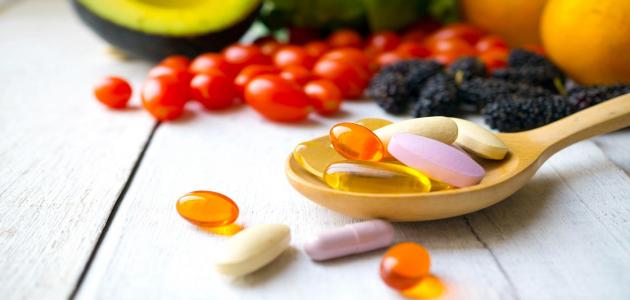Vitamins and minerals play an important role in human health, especially if the body is not able to produce or absorb enough nutrients, then it will not be able to grow and function properly.
The effect of vitamin deficiency arises when people do not consume sufficient amounts of nutrients in their diet or if the person’s body is unable to use the nutrients effectively.
According to “Medlife”, the body gives different indicators to inform you that you have a deficiency in a certain nutrient, for signs that indicate a problem with a lack of vitamins in the body.
Bruising and bleeding
Vitamin C deficiency results in symptoms such as nosebleeds, gingivitis, and easy bruising. Vitamin C is an antioxidant that plays an important role in maintaining the immune system and protecting your body from disease.
When the blood vessels near the surface of the skin weaken, they rupture and this causes bruising and the person to bleed easily.
In this case, it is important that you seek medical advice if you notice that any of these symptoms persist over a period of time and there is no other underlying cause. Besides following a healthy diet, your doctor often prescribes vitamin C supplements. You can also include vitamin C in your diet along with nutrients like lemon, orange juice, strawberry and papaya.
Unexplained tiredness and fatigue
Calcium deficiency results when the body lacks sufficient amounts of vitamin “D” or due to poor absorption of nutrients. This leads to bone deterioration and reduces energy levels in a person.
Vitamin D deficiency may cause sudden or unexplained fatigue symptoms. If a person notices these symptoms, consult a doctor, who will most likely prescribe the necessary vitamin D supplements. However, along with these supplements, foods rich in vitamin D, such as chickpeas, yogurt and milk, should be included in the diet.
Muscle weakness
Vitamin E is necessary to keep the immune system functioning, for cells to interact smoothly with one another, and for the body to function efficiently.
Vitamin “E” may lead to regular leg cramps, and this deficiency often occurs due to poor absorption of fats in the body. It results in nerve problems and reduces blood circulation. It also causes symptoms such as muscle weakness and cramps in the leg or hand.
Vitamin E deficiency is a serious health condition that can cause other symptoms, in which case the doctor prescribes a diet rich in Vitamin E and also prescribes vitamin E supplements.
Among the foods rich in vitamin “E” broccoli, oatmeal, eggs and spinach.
Blurry vision
The eye is one of the most common signs indicating a lack of vitamin B12 levels in the body, because its deficiency below the normal range leads to poor vision, as a result of optic neuropathy, a condition that causes blurred vision, because the nerve signal that travels from the eye to the brain is disrupted. .
Among the symptoms of vitamin B12 deficiency, as well as fatigue, nausea, loss of appetite, muscle weakness and redness of the eye.
This vitamin is necessary for the body to function properly. Especially since it plays an important role in the digestion process and the formation of special DNA, as well as red blood cells.
The body does not produce vitamin “B12” on its own, so, it depends on your intake of this vitamin through your diet.
Dry Eye
Vitamin A deficiency in the body has negative effects on eye health, as it is responsible for good and clear vision, and its deficiency leads to dry eye syndrome and night blindness, and if this decrease is not compensated for by eating food and supplements, the chances of exposure to macular degeneration related diseases may increase. Blindness, such as cataracts and glaucoma.
Vitamin A deficiency can lead to a weakening of immunity while inhibiting the production of pigment in the eyes necessary for vision. This condition usually occurs in people who suffer from digestive problems or those who are underweight.
If any early sign of vitamin A deficiency is detected, the doctor will recommend a dose of nutritional supplement. In addition to following a diet rich in vitamin “A”. The nutrients that are good sources of vitamin A are carrots, fish, sweet potatoes and pumpkin.



